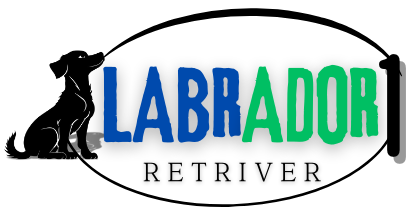GSP Labrador Mix: The Ultimate Guide to Training and Caring for Your Hybrid Dog
You’re not just bringing home a pet—you’re gaining a best friend, a jogging partner, a loyal protector, and a bundle of endless energy all rolled into one. That’s what you get when you welcome a GSP Labrador Mix into your life. If you’ve ever wished for a dog that combines the affectionate nature of a Labrador Retriever with the sharp instincts of a German Shorthaired Pointer, this hybrid could be your dream come true.
This guide provides all the information you need to understand, train, and care for your GSP Lab mix so you can establish a relationship based on trust, respect, and love, whether you are doing research before adoption or looking for guidance on how to raise your pup properly.
Table of Contents
What Is a GSP Labrador Mix?

Breed Origins and History
The GSP Labrador Mix is a cross between the German Shorthaired Pointer (GSP) and the Labrador Retriever, two breeds known for their intelligence, versatility, and loyalty.
- German Shorthaired Pointers were bred in Germany for hunting and tracking. Their stamina and alertness made them top picks for sportsmen.
- Beginning in Newfoundland, Labrador Retrievers immediately became well-known for their ability to retrieve water, their kind disposition, and their ability to be a family pet.
When these two are combined, the result is a hybrid with brains, energy, and a heart full of affection.
Why This Hybrid Is Gaining Popularity
You’re not alone if you’ve noticed more GSP Lab mixes at your local dog park. These hybrids are gaining popularity because they:
- Excel in agility, obedience, and sporting competitions
- Make excellent family dogs
- Adapt well to both active singles and households with kids
GSP Labrador Mix Appearance and Size
Coat Colors and Texture
There are several coat colors that your GSP Lab mix could have, including:
- Black
- Liver
- Brown
- Yellow
- Mixed patterns or ticking
Most coats are short to medium in length, sleek, and water-resistant, thanks to both parent breeds’ backgrounds in outdoor and water activities.
Height and Weight Ranges by Age

Understanding growth milestones helps ensure you’re feeding and exercising your pup appropriately.
| Age | Height (inches) | Weight (lbs) |
|---|---|---|
| 3 months | 12–15 | 20–30 |
| 6 months | 17–20 | 35–50 |
| 1 year | 20–24 | 50–70 |
| Adult (2+) | 22–26 | 55–80 |
Keep in mind these figures can vary slightly depending on genetics and diet.
Personality and Temperament
Key Behavioral Traits
You’ll notice right away how engaged and responsive your GSP Lab mix can be. These dogs are:
- Loyal – They bond deeply and want to be where you are
- Astute: Rapid learners who quickly understand instructions
- Energetic – Always ready to run, hike, or play
- Curious – Love to sniff, chase, and investigate
Potential Challenges
Although rewarding, there are some difficulties with this breed. You might come across:
- Separation anxiety if they’re left alone too long
- Boredom-based mischief, such as digging or chewing
- Excessive barking when not mentally stimulated
Proactive training and engagement are your best defenses here.
How to Train a GSP Labrador Mix

Best Training Methods for This Hybrid
You’ll find that positive reinforcement works wonders with this hybrid. Keep things:
- Consistent – Use the same commands every time
- Rewarding – Treats, praise, and playtime go a long way
- Fun – Use games to teach obedience
Avoid harsh methods. This breed is sensitive and thrives in a trusting environment.
House Training and Crate Training Tips
Here’s how you can make house training smoother:
- Maintain a feeding and urination routine.
- After your dog has eaten, napped, and played, take them out.
- Reward immediately after elimination
Crate training tips:
- Select a crate that is both roomy enough for mobility and comfortable enough to feel secure.
- Never use the crate as punishment
- Use treats and toys to create positive associations
Common Training Mistakes to Avoid
- Being inconsistent with rules
- Yelling or punishing after the fact
- Neglecting early leash training
Focus on creating structure, and you’ll build a confident, well-mannered companion.
Exercise Needs and Mental Stimulation
Daily Activity Requirements
You can not expect your GSP Lab mix to be satisfied with a quick walk. This hybrid does well on:
- 90–120 minutes of daily exercise
- Activities like:
- Jogging
- Hiking
- Fetch
- Swimming
- Agility courses
Mental Enrichment Ideas
To prevent boredom (and destructive behavior), incorporate:
- Interactive puzzle toys
- Nose work games
- Basic training refreshers
- Toy rotation every few days
- “Find it” games using treats
Remember, a tired dog is a happy dog.
Caring for Your GSP Lab Mix
Grooming and Maintenance
This mix is relatively low-maintenance, but regular grooming keeps their coat and skin healthy.
- Brush 2–3 times a week
- Bathe only when needed (every 6–8 weeks or after messy adventures)
- Check ears weekly for signs of infection
- Trim nails every 3–4 weeks
- Brush teeth 2–3 times per week
Feeding and Nutrition
What you feed your dog plays a huge role in their health, energy levels, and longevity.
| Age Group | Recommended Food Type | Notes |
|---|---|---|
| Puppy | High-protein, small-breed puppy food | DHA for brain and eye development |
| Adult | Balanced active dog formula | Avoid fillers, opt for real meat |
| Senior | Joint-supportive senior blend | Lower calories, added glucosamine |
Look for food with meat as the first ingredient, no by-products, and added omega-3s for coat health.
Health Issues in GSP Labrador Mixes
Genetic Health Risks to Watch For
While hybrid dogs may have better resistance than purebreds, some risks remain:
- Hip dysplasia
- Elbow dysplasia
- Ear infections
- Bloat (gastric torsion)
- Progressive Retinal Atrophy (PRA)
Early screenings and regular vet visits help detect and manage these issues.
Preventive Care Tips
To keep your pup healthy:
- Schedule annual wellness exams
- Stay current on vaccinations
- Administer flea, tick, and heartworm prevention
- Use glucosamine supplements for joint support
- Keep your dog at a healthy weight
You can prolong your dog’s life and improve its quality by taking proactive measures.
Is a GSP Labrador Mix Right for You?
Ideal Home Environment
Before bringing home a GSP Lab mix, ask yourself:
- Do you have an active lifestyle?
- Can you dedicate time daily for training and play?
- Do you have a fenced yard or access to open space?
This hybrid does best in homes where they’re an active part of your life.
Pros and Cons
Pros:
- Affectionate and loyal
- Smart and quick to learn
- Athletic and adventurous
- Great with kids and families
Cons:
- Requires lots of exercise
- Can develop behavior issues if bored
- Moderate shedding year-round
- Not ideal for apartment living
Frequently Asked Questions (FAQ) About the GSP Labrador Mix

Are GSP Lab mixes good with kids?
Of course. In addition to being kind and loving, they enjoy playing with kids. Just make sure that children and dogs are taught boundaries.
How much exercise does a GSP Labrador mix need?
Plan on 1.5 to 2 hours of physical and mental activity daily. Skimping here can lead to behavior problems.
How big does a GSP Lab mix get?
Fully grown, they usually stand 22–26 inches tall and weigh between 55–80 lbs, depending on genetics and diet.
Are GSP Lab mixes easy to train?
Yes, because they are very intelligent and like to please others. Training must begin early and be continuous.
Do GSP Lab mixes shed?
Indeed. Throughout the year, expect some shedding, particularly during seasonal shifts. Brushing once a week helps cut down on loose fur.
Conclusion: Embrace the Journey With Your GSP Labrador Mix
Raising a GSP Labrador Mix isn’t for the faint of heart—but if you’re up for the challenge, the reward is a dog who becomes your ride-or-die companion. Whether you’re hiking steep trails, tossing a frisbee in the backyard, or relaxing on the couch after a long day, this hybrid is right there with you, ready for whatever comes next.







